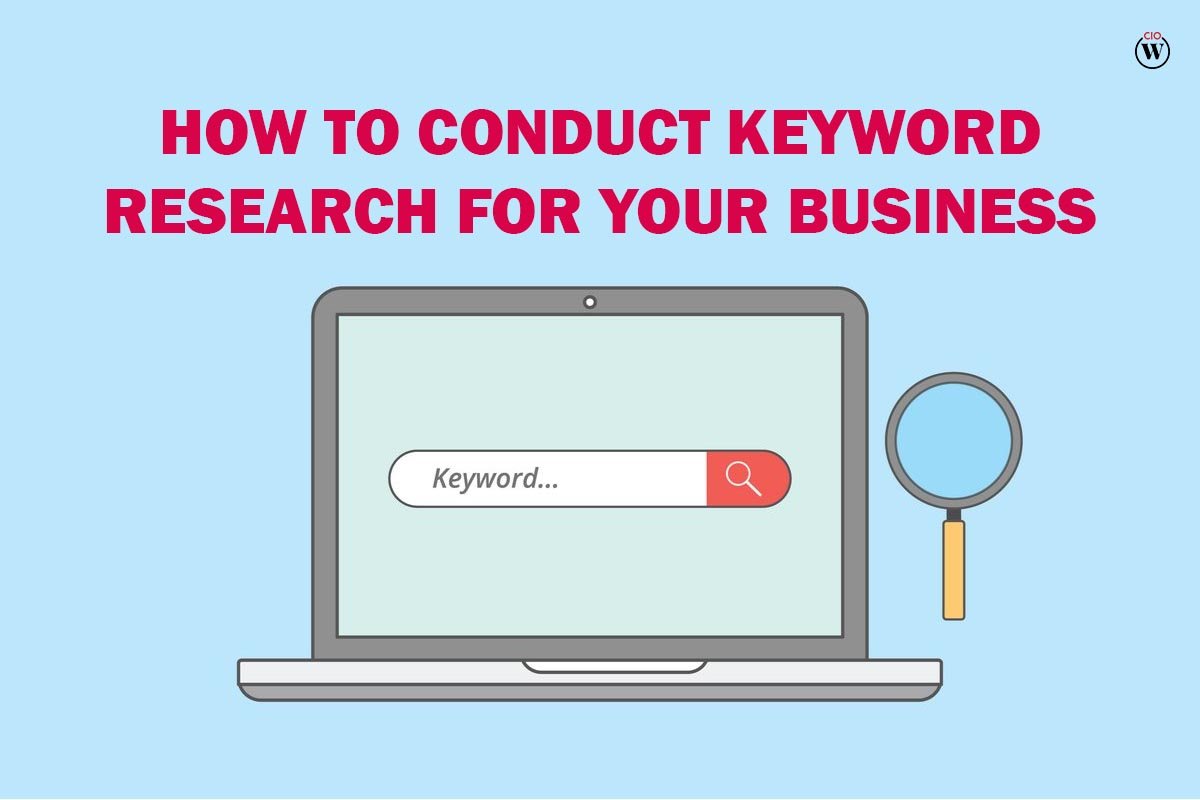Keyword Research For Your Business is very important for any online business that wants to do well. But what is keyword research, and how do you find the right keywords for your business so that it shows up more often in searches?
We’ll answer these questions and more in this article. We’ll talk about the different kinds of keywords you can research, how to find the right ones for your business, and how to pick the right ones. We’ll also give you a step-by-step plan for researching keywords.
Read on if you want to find out everything you need to know about Keyword Research For Your Business.
How do you do Keyword Research For Your Business?
Any business that wants to rank well in search engine results needs to do keyword research. By finding the right keywords and knowing how people search for them, businesses can make themselves more visible and attract more customers.
Even though it may seem difficult at first, Keyword Research For Your Business is easy once you know the basics:
Identify your target market.
Find out what words and phrases people use to look for similar products and services to yours.
Find the keywords that best describe your product or service and start using them in your content.
Different Keywords to Use for Research
When it comes to SEO, you can do anything you want. But your search might be pointless if you don’t know enough about the different kinds of keywords and how to look for them. So, this article is going to talk about three keywords and how important they are for small businesses.
Here are 6 Main Points of How to Conduct Keyword Research For Your Business?
1) Keywords for the area
When starting a new website or blog, it’s important to use local keywords.

These are words that describe your business or services in terms of where they are. For example, “local car detailing,” “local restaurants,” or “local dry-cleaning.” Let’s say you own a business that does business online. In that case, you can start by finding out which cities get the most traffic and then putting local keyword tags on your site’s high-traffic pages, such as “San Francisco car detailing,” “San Francisco restaurants,” or “San Francisco dry-cleaning.”
2) Brand Keywords
Once you have a few websites and blogs, hopefully with some good content, it’s time to start focusing on brand keywords. These are words that describe specific products or brands in your industry. For example, “Kohl’s clothes,” “Nike shoes,” or even “Facebook” are all examples of such words. There are many online tools, like Google AdWords Express, SEMrush, Ahrefs, and Moz, that can help you find the right brand keywords for your business niche.
- Keyword Research For Your Business
- longtail keyword phrases
- Tool SEMRush
Tip: We love the tool SEMRush, which we use. SEMrush gives marketers detailed insights and powerful analytical tools that help them compare the performance of their website to that of their competitors, find new growth opportunities, track the success of their digital marketing campaigns, and come up with a good keyword strategy. With SEMrush, you can get the information you need to decide where to put your marketing efforts and how to improve your campaigns for the best return on investment.
3) Unique Keywords
Last, don’t forget to use unique keyword phrases! These are longtail keyword phrases, or phrases with more than three words, that aren’t being used as main titles on any other websites besides yours. They might be buried deep in text descriptions, but they’re still useful.

Here’s how to Keyword Research For Your Business for your business.
If you make your website easy for search engines to find, it will bring the right customers to your site and make you more visible. Finding the right keywords is hard and takes a lot of experience, and if you choose the wrong ones, you’ll waste time. If you don’t know where to begin, here are some suggestions:
4) Use Google Adwords Keyword Planner
You can put in keywords that are important to your business and see how much traffic they bring. You can also use this data to figure out which keyword phrases are best for your website & Keyword Research For Your Business.
5) Analyze the competition:
Before choosing a keyword, it’s important to know how your competitors are using it and how well they’ve used it to market their products. Also, look at blogs in your industry for ideas on good keywords and ways to promote them online.
6) Look at the traffic data on your website:
Measure click-through rates (CTRs), unique visits per month, and the total number of pages viewed/visited over time to find out which words or phrases draw people in. The data will show how well each keyword phrase brings customers to your business.

How to Pick the Best Keywords for Your Business?
Finding the right Keyword Research For Your Business can be hard, but it’s important if you want your online presence to be as strong as possible. When choosing keywords, you should think about several things, such as your industry and the people you want to reach. Also, make sure that the keywords you choose are relevant and useful to people who might buy from you.
But keep in mind that Keyword Research For Your Business is just one part of a good SEO plan. To get people to come back to your site, it would also help to have a well-optimized website design and the right marketing mix, which should include effective content marketing. Careful planning and execution are needed to choose the right keywords; hard work is not enough.









